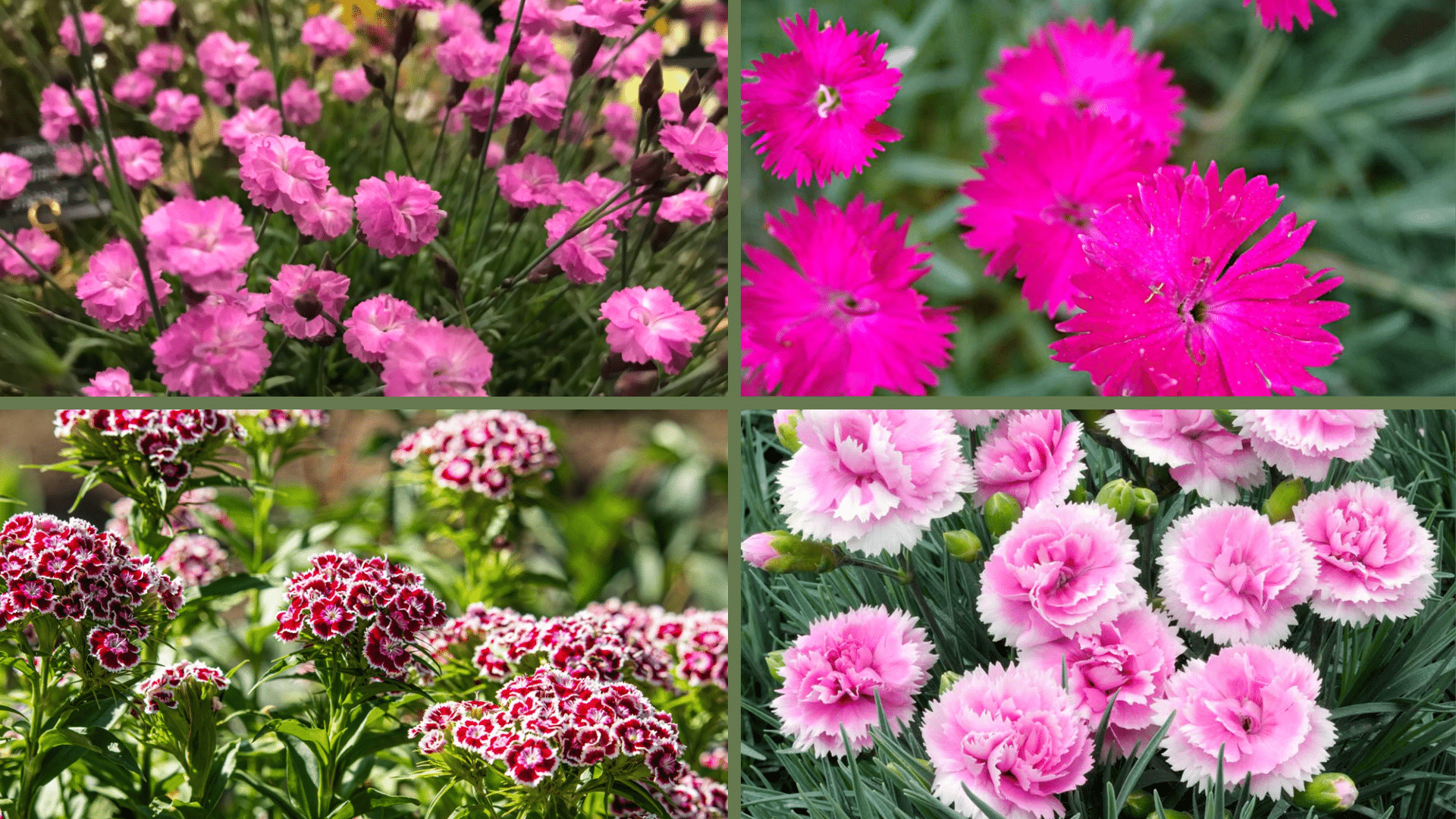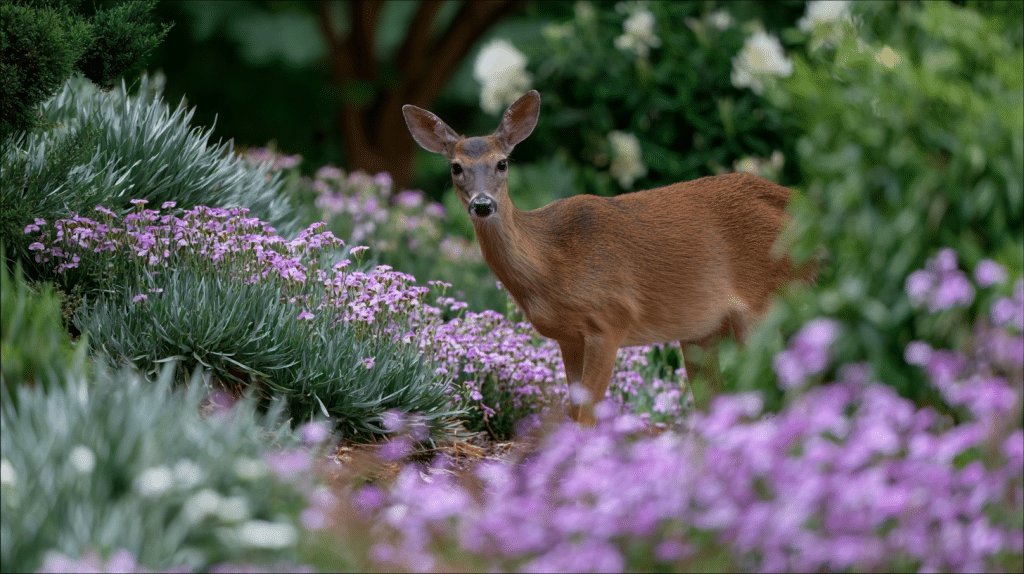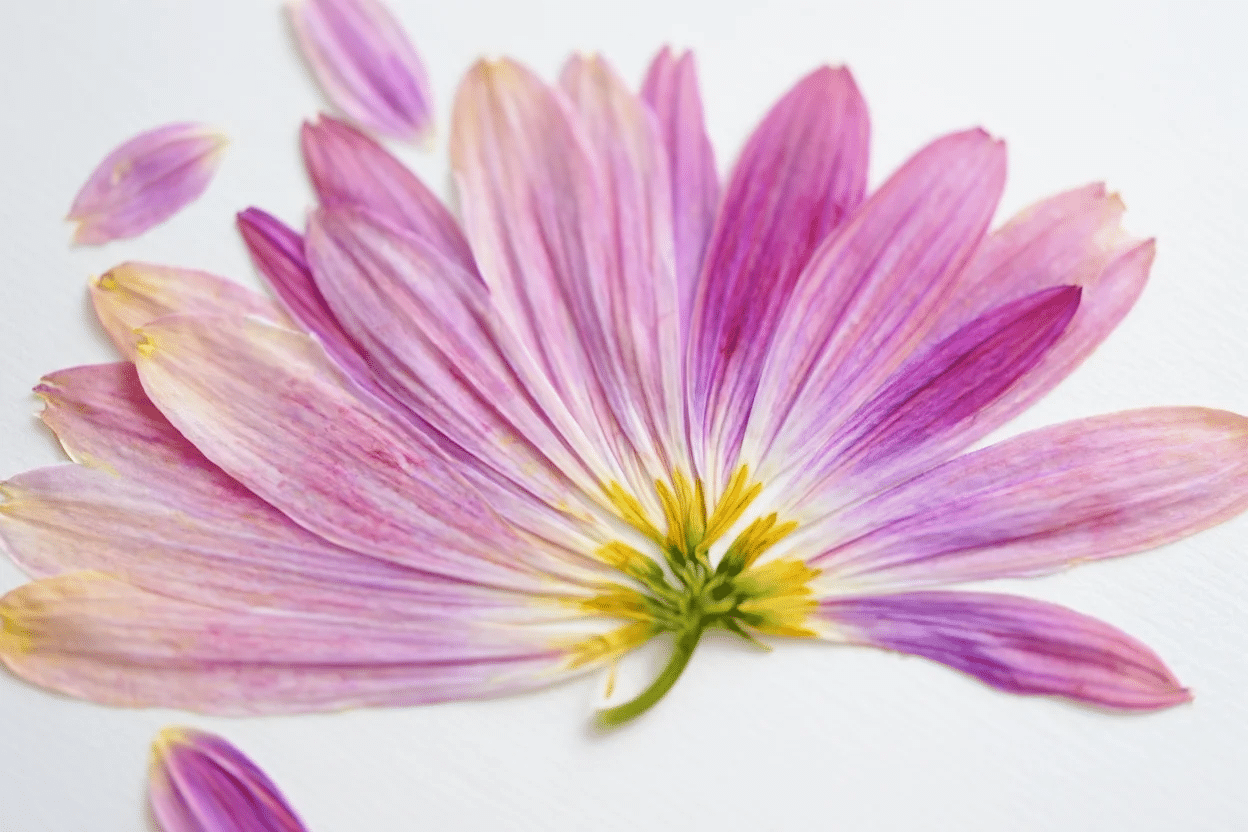I know how frustrating it can be when deer treat your garden like their personal buffet. You spend hours planting and caring for your flowers, only to find them nibbled down to stems the next morning. This happens to gardeners everywhere, and it’s especially heartbreaking when it affects your favorite blooms.
Dianthus might be the solution you’ve been looking for. These colorful flowers have natural properties that typically keep deer away from your garden beds.
In this blog, I’ll answer your question: Are dianthus deer resistant? You’ll learn why deer usually avoid these plants, which varieties work best. Plus, you’ll get to know how much deer can resist dianthus during a scarcity of food.
Explained: Are Dianthus Deer Resistant?
As a gardener who’s always on the lookout for plants that can withstand local wildlife, I’ve found myself asking: Are dianthus deer resistant? In my experience, and backed by expert sources, most varieties of dianthus truly are deer resistant.
Deer tend to avoid dianthus because of their unique blue-green leaves, which have a texture and taste that’s unappealing to them.
The sweet, spicy scent of dianthus blooms is another natural deterrent; deer simply don’t like it. I’ve noticed that even in areas with heavy deer traffic, my dianthus beds remain untouched while other plants get nibbled.
According to Rutgers University, dianthus is “seldom severely damaged” by deer, so you don’t need to take extra precautions or use repellents.
While no plant is ever completely deer-proof, dianthus is a reliable choice for a deer-resistant garden, and any minor damage can be pruned away easily.
Other plants or flowers like marigold, lilacs, and mint are believed to be deer-resistant. Go through my other blogs to find out if they are deer-resistant or not, click here, Understanding if Marigolds are Deer Resistant, Find out do deer like mint, and Do Deer Eat Lilacs?
Key Characteristics of Why Are Dianthus Deer Resistant Plants?
Deer can be a persistent challenge for gardeners, but some plants, like dianthus, offer natural protection against browsing.
If you’re wondering why dianthus is so rarely bothered by deer, the following are seven key characteristics that make this plant a smart choice for deer-prone landscapes.
1. Texture
Dianthus leaves and stems have a unique, often stiff or slightly hairy texture that deer find unpalatable. The blue-green foliage is not soft or succulent, making it less appealing for deer to chew on. This physical barrier is one of the main reasons deer typically avoid dianthus in favor of more tender plants.
2. Fragrance
Dianthus blooms emit a strong, spicy or clove-like scent that acts as a natural deterrent for deer.
The fragrance is pleasant to humans but overwhelming or unappealing to deer, discouraging them from feeding on the flowers or foliage. This aromatic defense is especially effective during the blooming season.
3. Chemical Compounds
Dianthus plants contain certain chemical compounds that contribute to their taste and scent, making them less attractive to deer.
While the exact compounds are not fully understood, they play a significant role in deterring deer from browsing, adding another layer of resistance beyond just texture and aroma.
4. Low Palatability
The overall taste profile of Dianthus is not appealing to deer. Even if deer are hungry, they tend to take only a few nibbles before moving on to more palatable options. This low palatability means dianthus is seldom severely damaged, even in areas with high deer populations.
5. Evergreen or Semi-Evergreen Foliage
Many dianthus varieties maintain evergreen or semi-evergreen foliage throughout the year.
This continuous presence of tough, unappetizing leaves further reduces the likelihood of deer targeting them, especially in winter when food is scarce and deer are more likely to browse on available greenery.
6. Rapid Recovery
If deer sample dianthus, the plants are resilient and capable of quick regrowth. Gardeners can simply prune away any minor damage, and the plant will bounce back vigorously, minimizing the impact of occasional browsing and maintaining its ornamental value.
7. Companion Planting Potential
Dianthus works well in combination with other deer-resistant plants, creating a protective border that can help shield more vulnerable species. By integrating dianthus into mixed plantings, gardeners can increase the overall deer resistance of their garden, making it less attractive to browsing wildlife.
Best Deer-Resistant Dianthus Varieties for Your Garden

If you’re searching for beautiful blooms that can withstand deer browsing, dianthus is a top pick for your garden. These excellent deer-resistant flowers bloom throughout summer in full sun with minimal care.
Not only do these flowers add color and fragrance, but several varieties are especially known for their deer resistance thanks to unique textures, scents, and growth habits.
1. Firewitch (Dianthus gratianopolitanus ‘Firewitch’)
Firewitch is celebrated for its fuzzy gray leaves and intense, spicy fragrance. The combination of hairy foliage and strong scent makes it unappealing to deer, who dislike both the texture and the aroma. This variety’s dense growth habit also adds a physical barrier, further deterring browsing. Firewitch is proven to be rarely damaged and thrives in well-draining soil.
2. Sweet William (Dianthus barbatus)
Sweet William features clusters of colorful, clove-scented blooms. Its potent fragrance contains natural compounds that taste and smell unpleasant to deer, making it one of the most reliable choices for deer-prone gardens. The slightly bitter taste adds an extra layer of protection. These deer-resistant blooms attract bees while deterring browsing wildlife.
3. Scent First Frost
This variety stands out for its white double blooms and a powerful minty, spicy fragrance. The scent is overwhelming to deer, while the thick, compact foliage makes it difficult for them to access the plant, increasing its resistance.
4. Neon Star
Neon Star offers pink flowers with a refreshing citrus scent. The unique aroma and the plant’s dense, low-growing habit discourage deer from feeding, as the foliage and flowers are both hard to reach and unpalatable. These pinks grow well in containers or planters.
5. Tiny Rubies
Tiny Rubies is a compact, mat-forming dianthus with small, fragrant blooms. The dense growth and strong scent act as natural deterrents, while the tough, evergreen foliage is less attractive to deer compared to softer plants
Will Deer Ever Eat Dianthus? What to Expect in Tough Seasons
While dianthus is widely recognized as deer-resistant, no plant is entirely deer-proof. These deer-resistant perennials tolerate challenging conditions but may still face occasional browsing.
Deer typically avoid dianthus due to its unappealing texture and spicy fragrance, but in tough seasons, such as winter or drought, when food is scarce, deer may sample even resistant plants.
Fortunately, dianthus is “seldom severely damaged,” according to Rutgers University, meaning deer rarely cause significant harm. If deer do nibble on dianthus, it’s usually limited to a few bites before they move on to tastier options.
If this happens, the damage is typically minor and the plant recovers well. Simply prune back any affected areas, and it should bounce back.
Overall, you don’t need to take special precautions to protect dianthus, but be aware that no plant is entirely deer-proof during times of extreme food shortage. Consider planting dianthus alongside other tolerant shrubs for a comprehensive deer-resistant option.
Growing Dianthus Spp in Different Zones
Dianthus spp, commonly known as pinks, are versatile plants that can thrive across various hardiness zones with proper care. Most dianthus varieties grow well in zones 3 through 9, making them suitable for gardens throughout much of North America.
In cooler zones, dianthus benefits from full sun exposure and well-draining soil to prevent root rot during wet seasons. Southern gardeners in warmer zones should provide afternoon shade to prevent stress during hot summers. Regardless of zone, these resistant proven perennials prefer slightly alkaline soil and moderate watering once established.
The Bottom Line
After years of dealing with deer damage in my garden, I can confidently say that dianthus has been a game-changer. These fragrant flowers offer both beauty and protection, making them perfect for any deer-prone area.
Remember, no plant is 100% deer-proof, but dianthus comes pretty close.
Their spicy scent and fuzzy texture create a natural barrier that most deer simply won’t cross. I’ve seen this work in countless gardens, including my own.
Start with a few varieties this season and see the difference for yourself.













